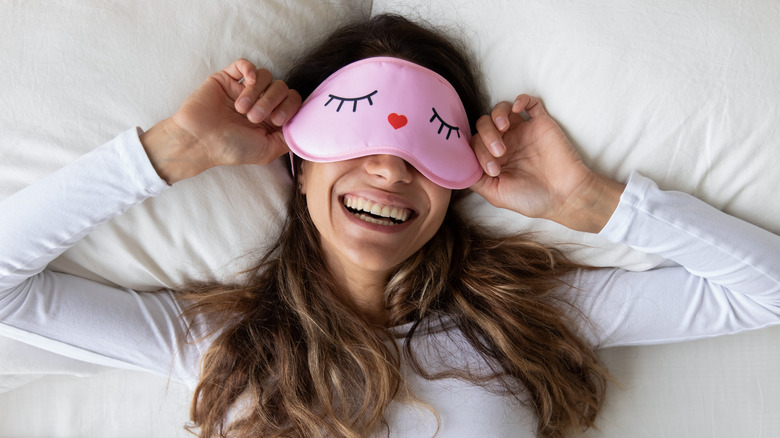During the recommended 7 to 8 hours of rest every night, your brain undergoes several stages of sleep cycle. In adults, the sleep cycle primarily includes two phases: non-REM and REM sleep. The first two stages of the non-REM phase is when the body is preparing itself to fall asleep. During the 3rd stage and prior to the REM phase, you experience multiple sessions of a phenomenon called deep sleep, slow-wave sleep, or delta sleep (per Healthline).
Deep sleep is the time when your mind is completely disconnected from the outside world, and enjoying the best rest! At this stage, your breathing and heartbeat slow down and there are no muscle movements. Interestingly, this is the same period when most people experience dreams and nightmares.
According to Verywell Mind, deep sleep is the stage when your brain releases the slowest waves called delta, which are crucial for repairing your body’s systems, boosting immunity, and replenishing your energy levels. Additionally, it’s critical for cognitive abilities such as learning skills and memory. Experts at Sleep Foundation recommend that at least 13 to 23% of your rest should be deep sleep. This takes up 90 minutes of a typical seven-hour sleep cycle.
How to enjoy deep delta sleep?

Because of its incredible restorative and healing effects that help you relax, deep delta stage 3 sleep is extremely important for your health. However, people with sleep disorders like insomnia or night terrors, irregular sleep-wake timings, or restless leg syndrome (RLS) often have trouble with deep sleep.
Not having a proper sleep schedule can disturb your sleep quality. While most people pay more attention to the required amount of hours, experts at the Sleep Foundation bust the myth, stating that the time you go to bed and the time you wake up have a strong correlation with delta stage 3 sleep.
Similarly, Forbes also suggests that you should avoid overeating and heavy snacking before bedtime as it can mess up your digestive system and cause disturbance throughout the night. Moreover, it’s necessary to not drink lots of water pre-bedtime as it can trigger frequent peeing and you might be unable to enjoy deep sleep.
Creating the perfect ambience also promotes better sleep quality. Make sure your room is the optimal cool temperature with ample ventilation. A 2024 study published in Scientific Reports also reported several benefits of using lavender aromatherapy or massage to induce the deep sleep stage before bedtime.








